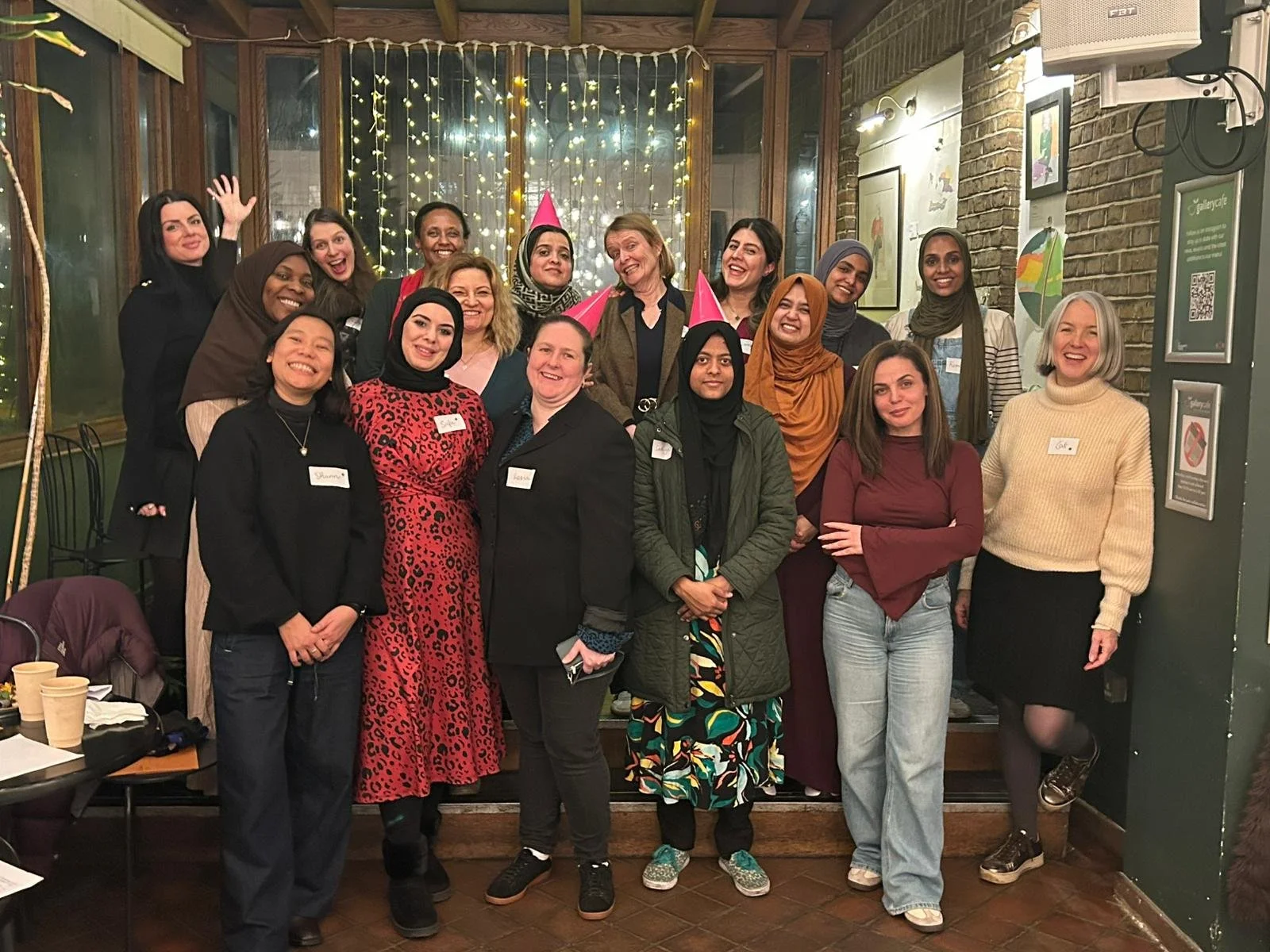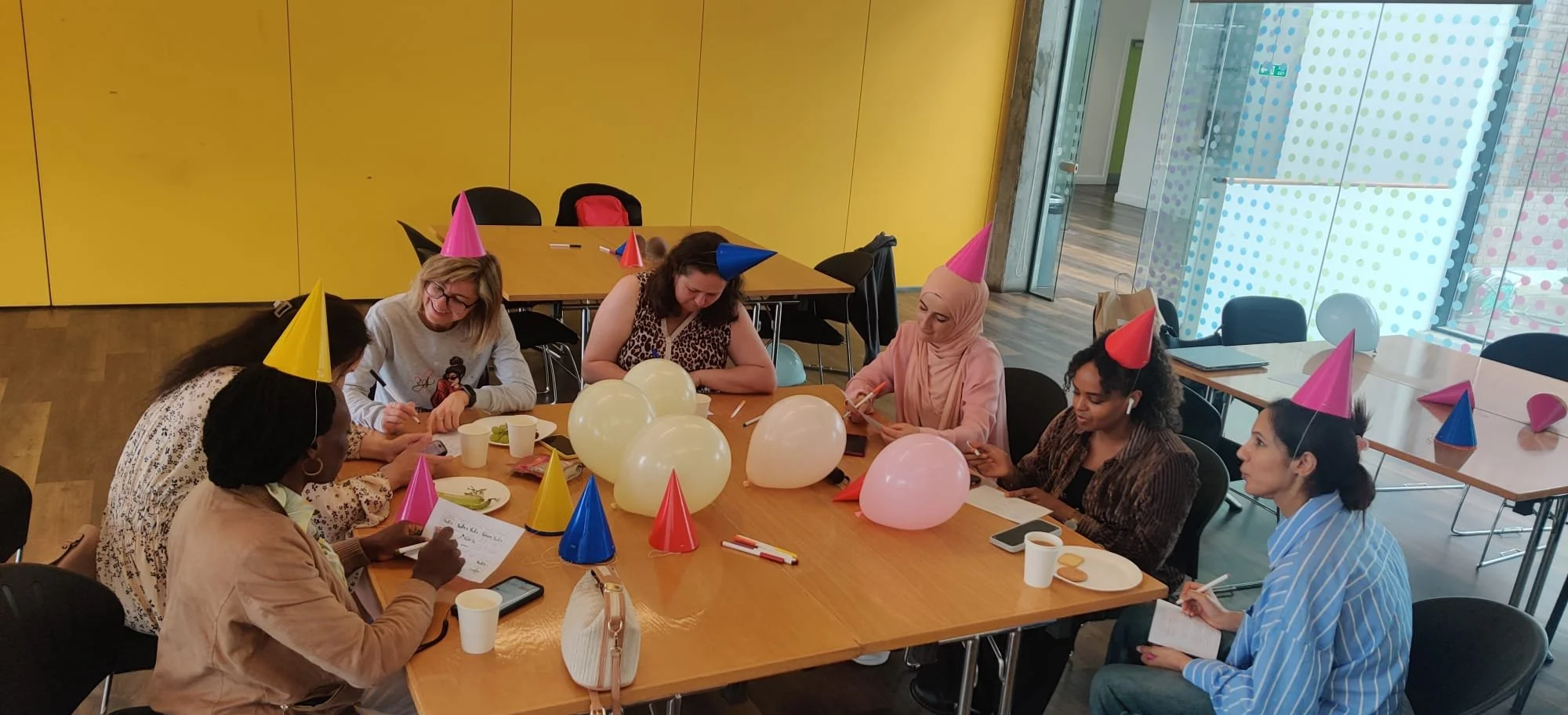Rethinking Fundraising Ethics: The Power of Community
Most funding in the nonprofit sector still operates on the traditional "philanthropy" model—privileged individuals or institutions decide what issues matter, how to resolve them, and what's best for both organisations and the communities they serve. It fundamentally misunderstands how meaningful social change actually works.
After 15 years working in nonprofit project management in Asia, then moving to community organising and fundraising with East and Southeast Asian communities in London, I've witnessed how funding dynamics create a constant cycle of organisational crisis. The stakes become clear when you see how this affects the work itself: organisations spend more time proving their worth to funders than building internal change, staff burn out from grant-chasing cycles instead of focusing on programme delivery, and resources get misallocated when funders may make assumptions about what communities need without consulting with those communities.
Our sector's constant crisis stems not only from a lack of resources, but also from funding models that can create dependency rather than sustainability. Thus, the focus shouldn’t be on how organisations can "financially survive" during these difficult times but how we move from survival mode to a sustainability that’s bolstered by mutual aid. Our work at Routes provides examples of the challenges and what a reflective, caring response can look like in practice.
Beyond Philanthropy
Traditional funding creates a cycle where charitable, social or non-profit organisations born out of systems who are unable to plug the gaps operate in constant crisis mode, always looking out for the next grant cycle and competing against each other for the same resources, getting in the way of us deepening relationships with each other and the communities we serve.
At Routes, we've experienced the merits of how progressive funders like Propel, a cross-sector collaborative network, who focus on putting money and agency in the hands of communities, can support the slow work of relationship-building and responsive programming. Core grants from private donors and foundations can contribute to organisational care and wellbeing in the form of reflective practice and leadership development, which resource us to adapt to the changing landscape and needs to transform outcomes. We are able to recognise our community’s strengths and potential that constructively inform how we design and deliver our programmes because we are not in deficit. Our flagship mentoring programme achieves a current 64% employment and education rate because we intentionally provide wraparound support like childcare, travel expenses, and hardship grants that reduce systemic barriers to participation to their capacity building.
Measuring What Matters
Some impact measurement frameworks don’t necessarily serve communities' interests, and it often forces organisations to chase metrics that serve those of funders, essentially allowing them to call the shots on what impact looks like, and on their timeline. It can result in organisations diverting resources to activities that aren’t actually the most useful to their beneficiaries.
Furthermore, the organisations creating real change are often the hardest to measure using conventional metrics. How do you quantify the impact of an environment where people feel genuinely cared for? How do you measure helping someone find their confidence and motivation to work towards their aspirations? How do you put a number to hope and trust?
As we’ve grown, we’ve reflected a lot on transformation in terms of cultivating relationships and resilient networks alongside individual outcomes. In our mentoring programme, mentees build important connections not only with their mentors but with fellow participants and our broader community, with many staying engaged as alumni with some historically becoming staff, or leadership group members. This evolving network of relationships creates pathways for collective leadership rather than just individual advancement.
While we might have produced concrete results this past year, what keeps us motivated and adhering to our mission is their conveying to us of feeling heard, respected, and empowered. This is not what’s easiest to count, and it extends into how we establish organisational decision-making. Our Lived Experience Leadership Group of six alumni shape strategy, resource allocation, and policy development. We measure the success of this group in the way they shape our priorities: Are we building conditions where community members can show up as themselves? Are we modelling the society we want to see and live in?
From Consultation to Leadership
Ultimately, DEI isn’t just about equity in representation, it calls for rethinking power dynamics. Routes initially tried recruiting board members with lived experience, but discovered the practical, emotional and legal limitations of this approach based on our alumni’s circumstances and status. Real change came when we created paid roles acknowledging lived experience as expertise, established our Lived Experience Leadership Group with actual decision-making power and accountability mechanisms, and worked on developing potential leadership routes from programme participation to governance roles. Three of our current staff members have lived experience, and we created a specialised board advisor position that enables participation without legal directorship burdens.
We’re continuing to explore how giving people with lived experience real decision-making authority can bring different forms of expertise together. This approach is already shaping the way we think about fundraising. As community members who understand systemic barriers help inform strategy and resource allocation, we’re becoming more intentional about the funding sources and types of support we pursue, identifying opportunities that genuinely align with our community’s needs. We believe this evolving ethos will help us build relationships with partners who truly appreciate the complexity of our work.
When a company partner proposed a panel discussion that would have framed refugee experiences through a general migration lens, missing the distinct realities of forced displacement, our community’s input helped us navigate accepting their resources while ensuring proper understanding and sensitivity. However, there have been times we’ve had to muster the courage to decline proposals that, though well-funded, might compromise our values and approach, and misrepresent our community.
Toward Regenerative Funding
Ethical fundraising requires us to be aware of the models that extract value from communities so that we may consciously move toward those that build collective power. We advocate for unrestricted, core funding that isn't just operational but supports community-building, and multi-year commitments that recognise meaningful change takes time.
We seek partners who bear an understanding that supporting refugee and asylum-seeking women requires investment in expertise that can transform mindsets and systems. These women bring valuable experience that contribute to our society as well as ideas for improving what’s not working: our asylum systems, employment structures, support services and workplace cultures.
The path forward is daunting, but it starts with acknowledging that the many communities we serve are the experts on their own needs, that we are responsible for creating the conditions where everyone can thrive, laying the foundation for social change that endures.
If you’re a funder or a company reading this, and our approach chimes with you, we’d love to talk.



